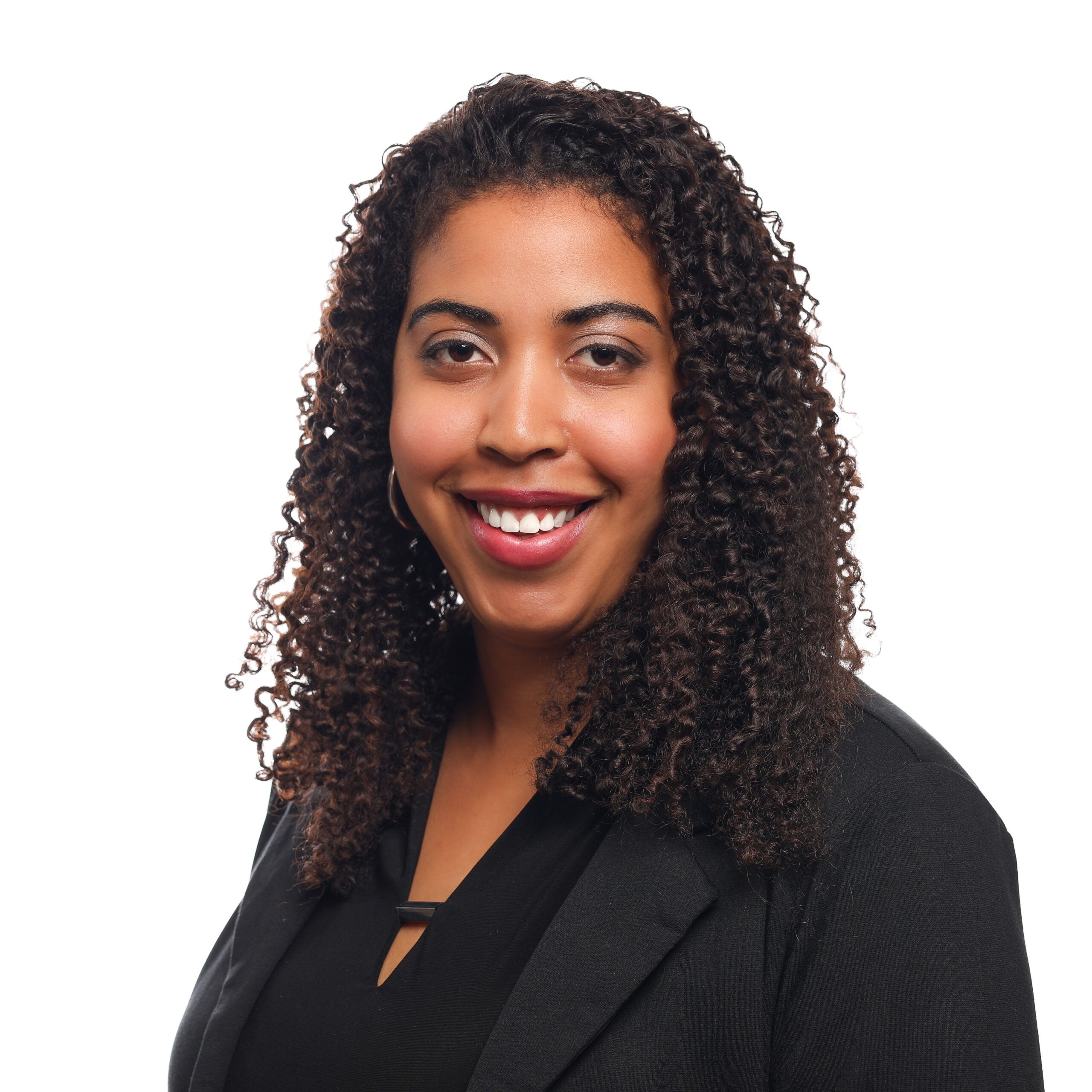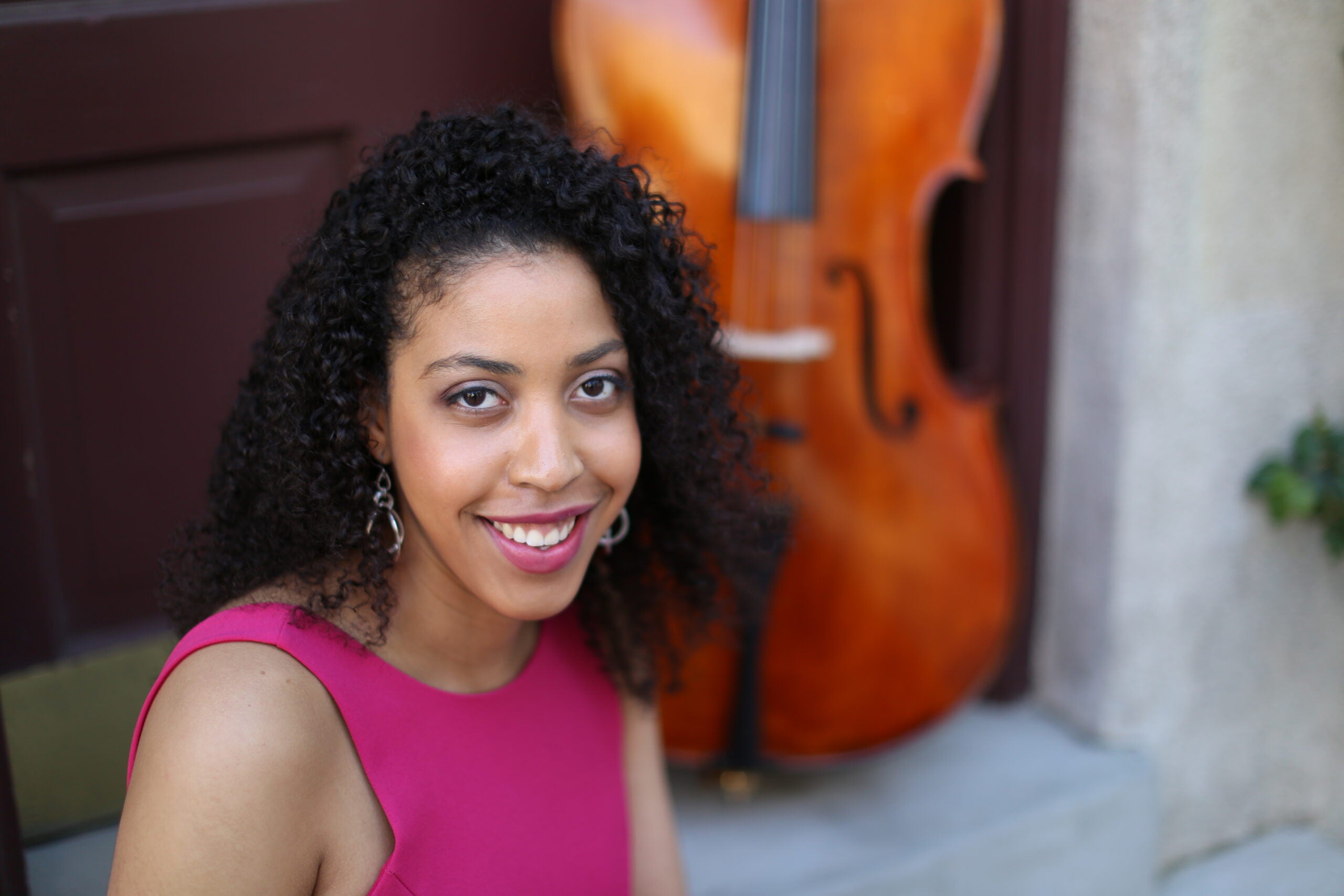[Originally posted by the Office of Clinical and Pro Bono Programs, Clinical Spotlight]
One musician-turned-law student’s journey to advocate for artists

When Krysta Hyppolite ‘25 first picked up a cello, she did not envision herself poring over legal contracts or advising fellow musicians on trademark law. Yet her experiences since that day—in orchestras, in recording studios, playing gigs from weddings to musicals—illuminated the challenges facing working musicians. Now as a 3L at Harvard Law School, Hyppolite is ready to get back to work in the music world, with an understanding of the complex intersection of arts and law and the limitations of legal solutions in protecting musicians’ interests.
“I’m a cellist, and my background is really in music,” says Hyppolite, who completed her undergraduate studies at NYU with a double major in cello performance and politics. After earning an artist diploma in cello performance, she immersed herself in the professional music world, substituting in orchestras across the country, playing in theater production, and doing recording work.
Her transition to law school was shaped by both personal and family experiences. Growing up with a father in the record label industry, Hyppolite witnessed firsthand how technological disruption and economic uncertainty could impact musicians’ livelihoods. “During the 2008 recession, seeing how file sharing changed the industry – there was definitely risk,” she explains. “Everyone told me, ‘You can be a musician, but you can’t just be a musician.’”
With an inclination towards studying government and politics, law school was always on Hyppolite’s mind as a natural next step. Working as a professional musician opened her eyes to systemic issues within the industry. “As I continue to work in music, it’s a pretty messed up industry and a lot happens that really isn’t right. I thought that going to law school would be a good way to help musicians,” she says.
The Recording Artists Project (RAP) became a crucial factor in her decision. “The Recording Artists Project is one of the reasons why I decided to come to Harvard,” Hyppolite says. RAP is a student practice organization where students, under the supervision of clinical instructor and lecturer on law Carmen Halford, offer pro bono legal assistance to musicians and other entertainment clients. “Most law schools I looked at didn’t have opportunities where I could get experience working with musicians right out of the gate,” Hyppolite adds.
She dove into work with RAP her 1L year, creating producer agreements, contracts, and participating in the Mondo.NYC Conference to offer pro bono legal counseling to musicians beginning their careers. Amid a challenging 1L year, Hyppolite’s work with RAP offered a reaffirming boost. “I knew that litigation wasn’t for me, and 1L work is very litigation heavy. Getting to do what I came to law school to do through RAP was a reminder that I don’t need to jump to the conclusion that law school isn’t for me.”
As a 2L and 3L, Hyppolite has served as a Team Lead in RAP, guiding new students through their projects and fostering the organization’s professional community. The work hasn’t stopped there—Hyppolite also spent two semesters in the Transactional Law Clinics (TLC).
In TLC, Hyppolite was able to work with even more clients in the entertainment law space. Her projects have ranged from helping artists navigate record deals to advising on music video contracts. In the clinic, Hyppolite has had a chance to see the challenges entertainers are facing from a new angle, learning more about when the law can help and where it can impose limitations.
One particularly memorable client stands out: “We had very similar backgrounds in doing classical music, but also doing things in a variety of genres,” she says. The clinic was working with the client on music licensing issues. “This is somebody who was pretty legally savvy, who wanted to do things right,” Hyppolite recalls. “He did a lot of cover songs, and he always wanted to get licenses to do those cover songs.”
The experience highlighted a crucial disconnect between legal requirements and practical reality. “You hear about all these efforts that the government has made to make music licensing easy. And then you do this work, and you figure out licensing actually isn’t very easy in a lot of cases,” she explains. “When somebody’s trying to do the right thing, and there are all these obstacles in the way – how do you advise them?”
Hyppolite’s unique position as a musician and soon-to-be J.D. has given her insight into the systemic challenges facing working artists. “Systems evolve to make things easy for big corporations, but what’s easy for them is not easy for a five-person band trying to license songs and do what they need to do,” she says. “The biggest issue is that things haven’t evolved for the everyday working musician.”
Her legal education has also revealed structural inequities within the music industry, particularly regarding labor protection. “Most musicians aren’t allowed to unionize,” she notes. “Basically, only symphony musicians can unionize. And while the union protects classical musicians, I find they mostly protect classical musicians that are in the top orchestras.”

These revelations have led Hyppolite to reassess her career trajectory. “I personally have concluded that the law is definitely important and necessary, but I don’t think that is the best way to help musicians,” she explains. “I’m definitely looking more into business careers and to playing music a lot more.”
Looking ahead, Hyppolite plans to continue straddling both worlds. As she approaches graduation, she’s even considering going on tour – which she’s been preparing for this year as she balances gigs (from string quartets at weddings to a production of Annie) with her legal studies. Her journey suggests that while legal knowledge can be a powerful tool for change, the most effective solutions might lie beyond the courtroom, in the spaces where business, art, and advocacy intersect.

